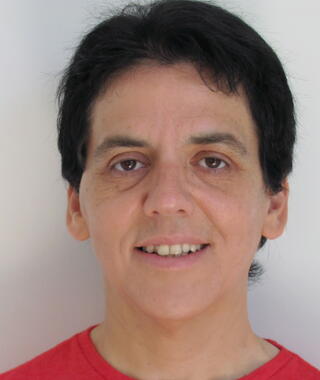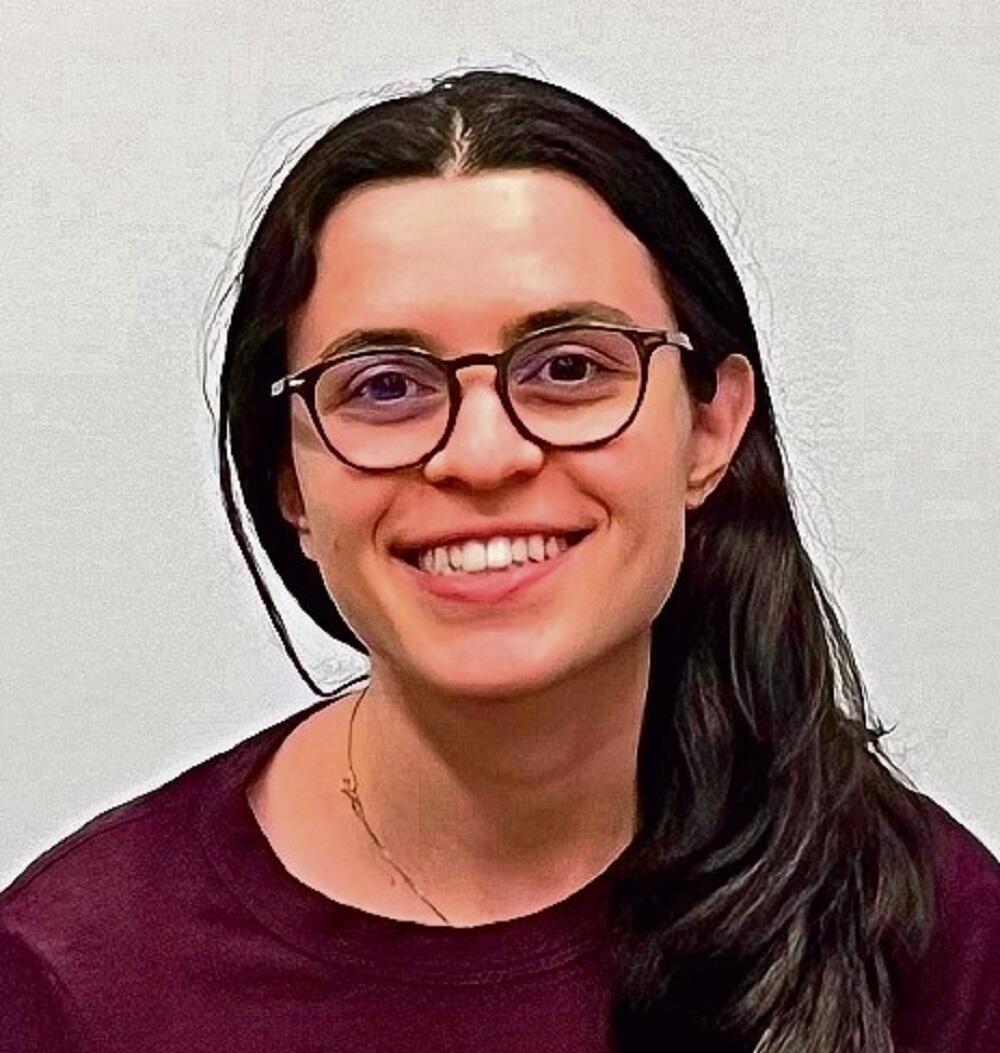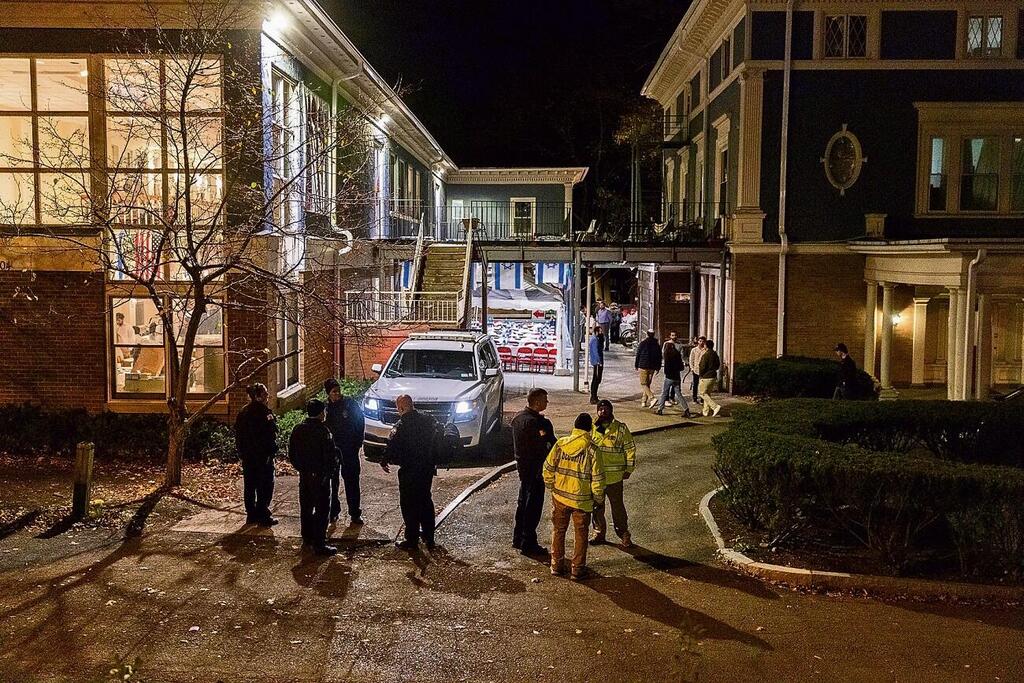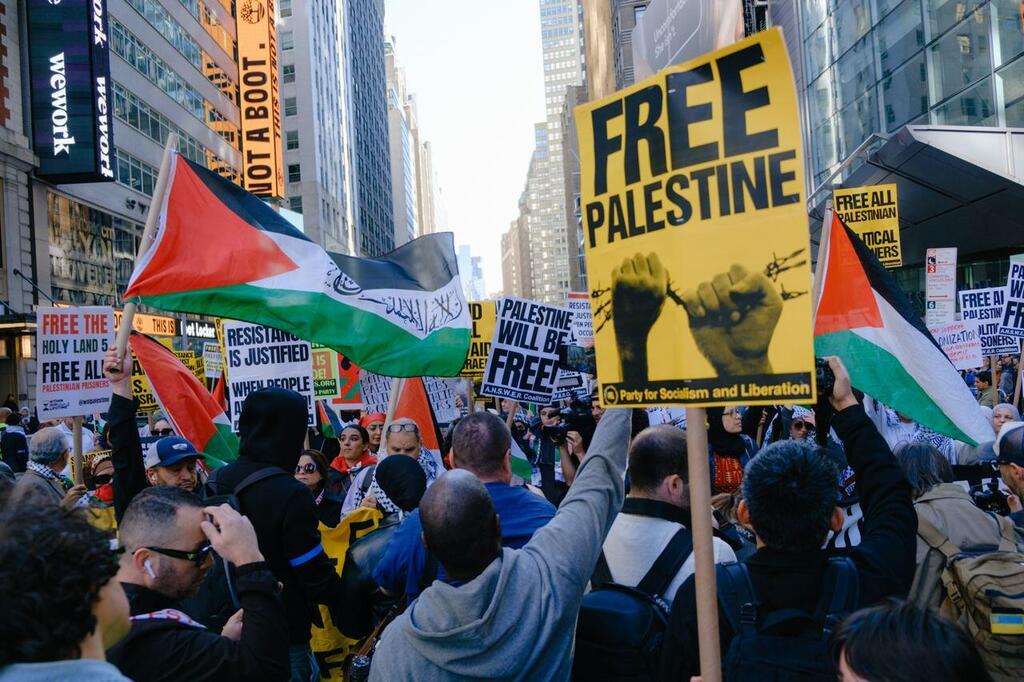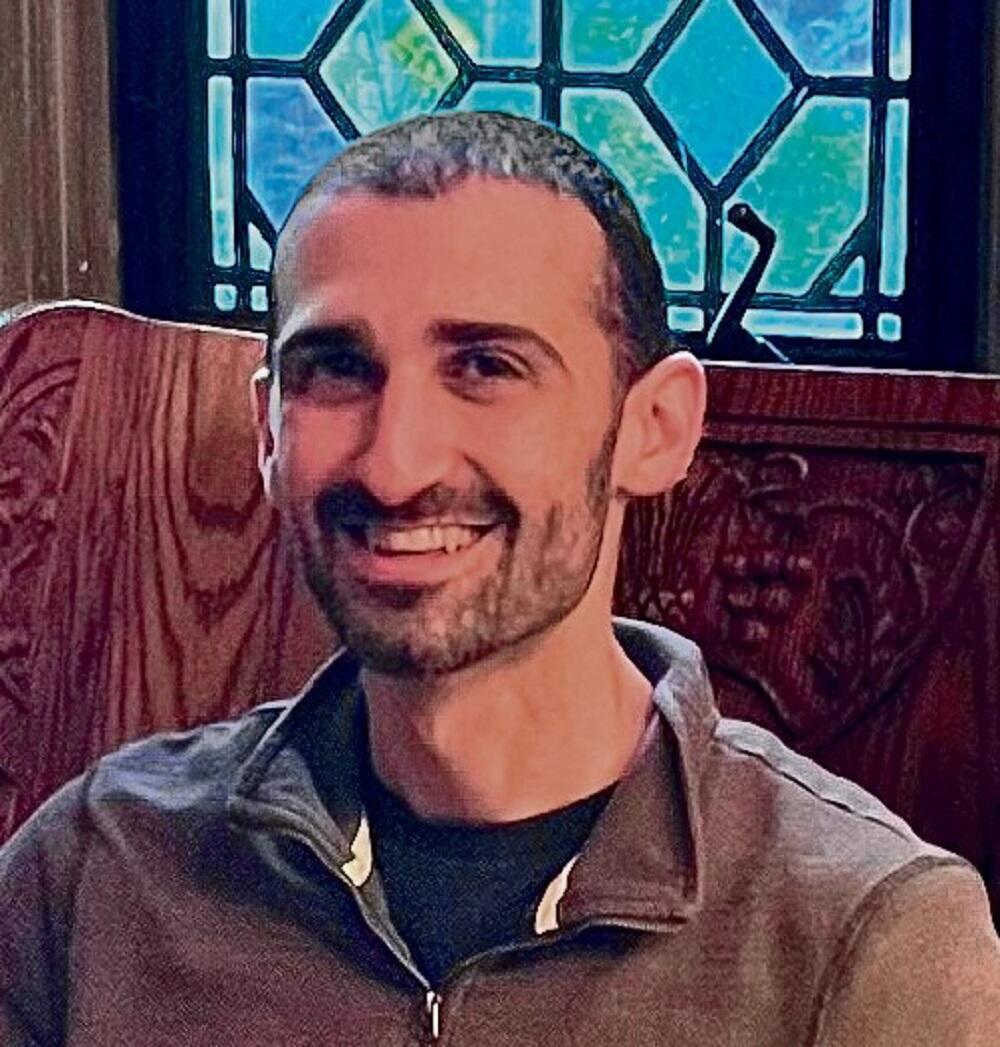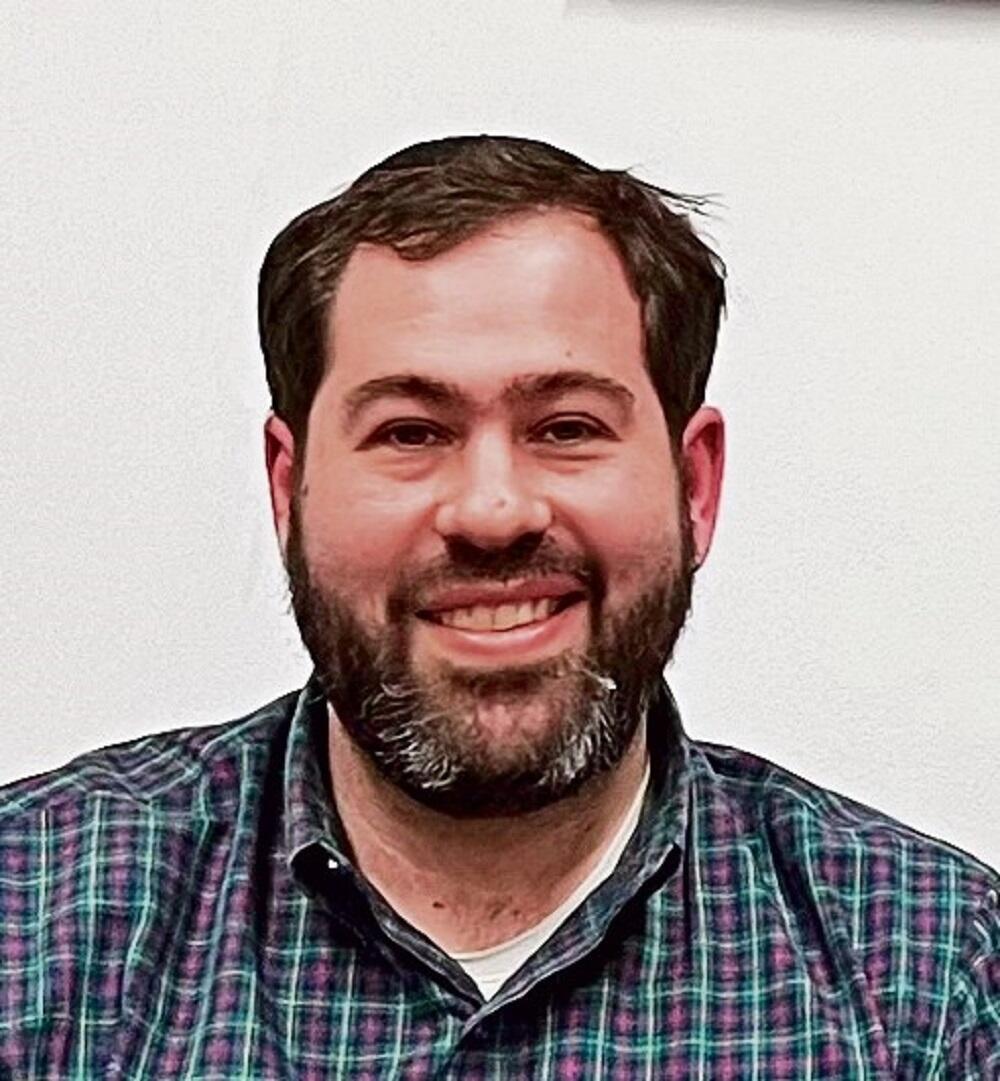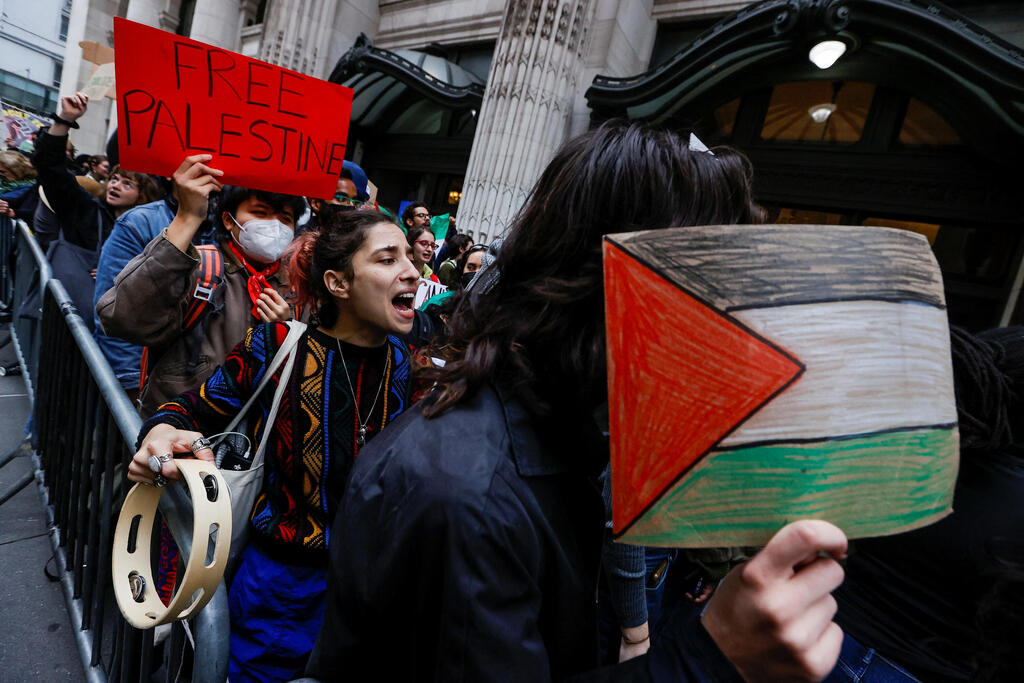Simone Shteingart is one of those people who can give a little hope to the most jaded adult after spending only a few minutes with them. She’s clever, sharp, inquisitive, and full of energy, mature beyond her 22 years, and still a girl. In her fourth and final year, she’s a well-known figure in Cornell University’s very large Jewish community.
More stories:
She takes part in every activity and walks around campus wearing a necklace with Hebrew letters spelling out the word “Ahava” – love. Like on any Shabbat or holiday, on October 7th, her phone was switched off. Her father came to the United States after fleeing the Soviet Union and a short stint in Israel. On that Shabbat, he returned from the synagogue and told her that they had been talking about something terrible in the south of Israel.
“I thought it was another round of fighting that, sadly we’ve gotten used to” says Shteingart. “But when I turned on my phone after the holiday, it was so awful, so horrific, so unbelievable, that it took me a few days to process that it had really happened. Israel is very important to me. I’ve visited several times and I have family there. I’m a Zionist with all my heart, and I feel very deeply connected to the country, so what happened on October 7th felt very personal.”
In the month since then, Simone, along with almost 3,000 further Jews at Cornell making up over 20% of the student body, have grown up very fast. Too fast. They’ve cried a lot, encountered antisemitism as never before, watched a university professor heartily celebrate the Hamas massacre, were subject to physical threats, and found themselves with a security detail even at the biggest kosher restaurant on campus. Things have now calmed down, but Simone Shteingart, who looks like she’s afraid of nothing, is still in search of the sense of safety and security she had on October 6.
“I live with two Jewish roommates and we’re debating whether we should the mezuzah off the door,” she says. “Someone knocked on the door late one night. Before October 7, it wouldn’t bother me – I’d have instantly opened the door. Now, my first thought was ‘Someone’s come because they know three Jewish girls who are very involved in the community live here.’ It’s crazy that I should need to think like this. It turned out to be just a maintenance guy who had the wrong door.“
Kippots and mezuzahs
Almost five hours drive from New York City is the city of Ithaca, centered around the elite Cornell University. Regularly ranked somewhere at the bottom of the top ten institutions of higher education in the United States, Cornell has a breathtakingly beautiful campus, drenched in colorful mountains and rivers flowing between the campus lecture hall buildings.
It attracts thousands of applicants each year. Only 7% are accepted, highlighting the achievement of the very large Jewish student body on campus, constituting a whole Jewish world at Cornell.
“I remember arriving here in 2016 and thinking that my only job would be building up a Jewish community and Jewish identity, “ says Rabbi Ari Weiss, executive director of the Cornell branch of “Hillel”, the world’s largest Jewish student organization.
“I live with two Jewish roommates and we’re debating whether we should the mezuzah off the door,”
“The following year, we saw fliers about “Jewish lies” and incitement styled after the Protocols of the Elders of Zion. Swastikas were daubed on walls. Every round of fighting in Gaza has been accompanied by antisemitism. It very much surprised me."
My family went through the Holocaust. I thought these things were in the past and meeting it in the 21st century on a college campus in the United States was shocking. Jewish life here is so vibrant. We build a sukkah every year. Students walk around with kippots and “Chai” necklaces. There’s kosher food and never-ending social activities. I really didn’t think that I’d spend so much time dealing with antisemitism.”
But these were isolated incidents – the kind you quickly forget. “We have a very strong presence on this campus and I didn’t feel real antisemitism,” says Shteingart. “There would be anti-Israel comments in class, but not a lot and not very often. I don’t even remember what they were. That’s how unimportant it seemed to me.“
All of this changed on October 7?
“It was a massive change. Huge. It was as if people now had the freedom to release their inner antisemitic. In some ways, I’m shocked, but I always knew there was something beneath the surface. Now it’s not anti-Israel, it’s totally blatant antisemitism.”
For example?
“It’s obviously very scary to hear ‘From the River to the Sea’, but there’s also ongoing use of Jewish stereotypes. In chat groups, people say things like ‘The Zionists run Cornel’ or ‘The Jewish donors dictate to the president of Cornell what to say.’ People just say terrible things. Cussing and threatening and things that I’ve never heard before.”
Two incidents made Cornell the epicenter of the debate around the sharp rise in antisemitism on elite campuses in the United States in the past month. One was a video clip showing a history professor named Russell Rickford saying he was “exhilarated” by the Hamas massacre because “Palestinians of conscience were able to breathe for the first time in years.” Rickford later apologized, but the viral video opened up a Pandora’s box at Cornell.
A few days later, direct threats appeared in student chat sites on campuses across the United States, targeting the “Cornell Center for Jewish Living”, specifically “104West!”, a multicultural restaurant offering kosher food. At this point, security authorities started taking the matter seriously. Police vehicles were stationed outside the building. New York Governor, Kathy Hochul arrived for a solidarity visit and a suspect, 21-year-old Cornell junior, Patrick Dai, was soon arrested.
“It was really scary seeing these specific threats” Or Caduri, Director of Student Life at Cornell Hillel tells us. “It didn’t look like a bot or just a troll. It was a person familiar with the map of the campus. There are students who live right next to this center. They’re the ones organizing the activities supporting Israel and their faces are exposed. After the threats, we took their pictures down from our website. The more involved you are, the more of a market target you are. Big news outlets showed up and lots of students were too afraid to be interviewed. They didn’t want their faces on television.“
“It was really scary seeing these specific threats, it was a person familiar with the map of the campus."
Caduri has only been at Cornell for three months, and nothing prepared him for the need to help thousands of shocked and frightened students. “These guys are truly extraordinary,” he says. “While I was still stunned by what had happened, they’d already started activities. They’re talented and they can take the pressure, but lots of them have family in Israel.
"They’re also very young and they’ve been traumatized. About two weeks later, it was clear that they were feeling isolated from their non-Jewish environment. They have friends and roommates. They’re in student clubs together. They were working together toward the same social agendas. And then suddenly, on this issue, they found themselves totally alone. They had no one to talk to. They tried explaining their pain and no one would listen. That’s how they feel about the war here.“
It’s good that there are so many Jewish students here.
“It’s the highest percentage of Jewish students in the Ivy League. Jewish parents in New York City want their children to go to Cornell. When we organized a pro-Israel event here, 750 people showed up. We don’t see these kinds of numbers at other universities. You also see lots of students coming just to sit here and be together. They have a place to go and someone to talk to. I’m sure it’s much harder at universities with smaller Jewish communities.
Rabbi Weiss: “These are Generation Covid kids. They have big questions about life. They’ve had no experience of antisemitism. What’s made the last month so hard is that a lot of students are now feeling it. October 7th was so painful that all we wanted to do was grieve.
"The first thing was to just give them the support they needed. I’m a rabbi, and listening is part of what I’m trained to do. Students would call me crying in the middle of the night. We had a memorial evening a few days after the massacre, just so that we could be together and sing and pray. “
A survey conducted this week in the United States shows that 63% of Americans aged 18-39 don’t know that 6 million Jews were murdered in the Holocaust. 23% believe that the Holocaust didn’t happen at all or that it is exaggerated.
This ignorance explains a large part of the responses on campuses this past month. But only part. New social trends, changing demographics along the long-term neglect of the relationship between Israel and the Jewish community in the United States are also contributing factors.
For many years, there’s been a narrative at elite universities saying that any weak element in society is right and that any response they might take is, by definition, justified“ says Caduri, who took up his position at Cornell after working with Jewish organizations in Baltimore. “There are no nuances anymore. And as the Jewish minority is always the successful one, they’re on the side of the bad guys.“
They’re not just successful, they're firstly white in their eyes.
“People raised in progressive oppressor-and-oppressed ideologies believe that if Hamas are fighting, it’s because they want dialogue, and not because they just hate Jews. No one wants to think such a terrible evil exists, and definitely not in the name of a cause they support, so they’re in denial. They use slogans and just talk nonsense. In a lot of places, the people leading the demonstrations aren’t even Muslims or Palestinians. The student arrested following the threats here at Cornell isn’t a Muslim.”
Rabbi Weiss: “In academia, on the progressive left – not the liberal left – there are those who care more about ideology than they do about people. They have language justifying barbarism because it’s the ‘struggle against colonialism’. We should, however, keep things in perspective: There are over 15 thousand students at Cornell, 200-300 of whom, a tiny minority, make a lot of noise.”
Shteingart: “I don’t think that everyone who shouts ‘From the River to the Sea’ even knows what it means, but you have to ask how, at a top university, people can be so ignorant. You can’t support a cause if you don’t know what you’re talking about.
"People start supporting all kinds of agendas just because it sounds right to them, without really understanding them. ‘Free Palestine’ is a good slogan. It’s catchy. You’d obviously be for it. It’s like social justice. Who wouldn’t want people to be free? I’m a Zionist with all my heart and I know that the conflict is complicated, and that there are nuances.
"They think that if you’re a Zionist, you want all Palestinians to die. 15% on either side will never change their minds, but I think that the majority chooses the Palestinian side because it’s the cool thing to do these days.“
No help on campuses
Even at Cornell, no one knows if it’s possible to go back to October 6th. It would require picking up a lot of pieces. Caduri believes that the main thing needs to be strengthening the relationship between Israel and communities in the United States.
“At the end of the day, we only have each other. In recent years, a gap has evolved between America and Israel, but now everyone has seen that we can’t be separated. The moment the war broke out in Israel, it got to Jews here. They’re attacked online. They’re afraid to walk in the street. They have family in Israel and they feel it in their bones. These are very trying times, and if we don’t include these people, we’ll lose them.”
Rabbi Weiss believes that “the best response to antisemitism is Jewish pride. It’s important that people know that Cornell has one of the largest Jewish communities on American campuses, and that we’ve experienced a trauma, that we’re still a bit shaky, and that we’re standing on our feet. This is exactly our heritage as Jews. We’ve been through what we’ve been through, and we’re still standing. “
Simone Shteingart, who wants to work with children after graduation, refuses to lose faith in a better world. “What happened has definitely changed me. There’s no doubt” she says. “I’m a liberal, and now I feel alone because the people I thought were my partners, left me at the most critical time, so I ask myself where my political home is.
"But I also want to sit down and talk with the other side. I’m now talking a little with one of the leaders of the Muslim group here. It’s not easy, but it’s harder to hate when you see someone with your own eyes, and you can empathize with people on the other side who’ve also lost family. Right now, everything is very painful and the wound is open, but we have to find a way - because we can’t carry on like this, I refuse to accept a reality like this.”



